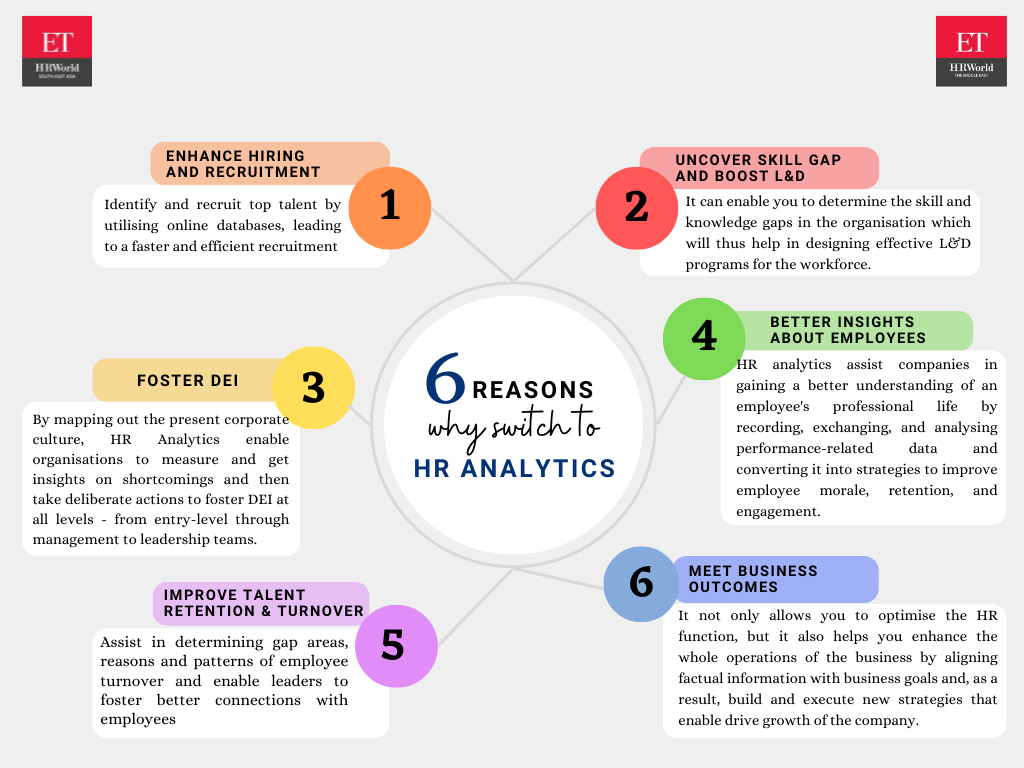Improve Your Workflow with Intelligent Analytics Solutions
Improve Your Workflow with Intelligent Analytics Solutions
Blog Article
Increase Efficiency and Success Via Information Analytics
In today's data-driven landscape, organizations are increasingly acknowledging the critical role of data analytics in improving operational performance and productivity. By methodically examining data, organizations can uncover critical understandings that notify critical decisions, simplify procedures, and tailor customer experiences (Analytics). The obstacle exists not just in the execution of these logical tools yet also in recognizing how to equate data into workable outcomes. As we explore the subtleties of effective data-driven approaches, the ramifications for both temporary gains and long-term success ended up being increasingly clear. What might these understandings disclose for your organization?
Comprehending Data Analytics
In today's data-driven landscape, recognizing information analytics is necessary for companies intending to enhance operational effectiveness and drive success. Information analytics involves the methodical computational evaluation of information collections to discover patterns, relationships, and understandings that inform decision-making. By using various techniques, such as statistical evaluation, device discovering, and anticipating modeling, organizations can change raw information into workable knowledge.
The process generally starts with data collection, where relevant details is gathered from numerous resources, including transactional data sources, consumer communications, and market fads. This data is then cleansed and arranged to ensure accuracy and uniformity. As soon as the information is prepared, logical devices and software program are used to visualize the information and explore, enabling stakeholders to identify abnormalities and patterns.
Eventually, understanding information analytics encourages companies to make informed decisions based on empirical proof as opposed to intuition. It helps with targeted strategies that can optimize source allocation, boost consumer fulfillment, and improve overall efficiency. As services progressively recognize the worth of data-driven insights, a strong understanding of data analytics comes to be an important competency for leaders and teams alike, placing them for sustained success in an affordable setting.

Trick Benefits for Organizations
Companies that leverage data analytics can unlock a plethora of advantages that dramatically enhance their operations and productivity. Among the key benefits is improved decision-making. Data analytics offers workable insights originated from real-time data, enabling businesses to make educated selections that align with market needs and consumer choices.

Furthermore, information analytics promotes improved client experiences. By recognizing customer behaviors and preferences, services can customize their offerings, bring about raised complete satisfaction and loyalty. This personalized method usually results in greater conversion prices and repeat service.
In addition, information analytics makes it possible for services to determine emerging chances and patterns. By remaining in advance of the curve, companies can profit from brand-new markets and technologies before their competitors.
Executing Data-Driven Strategies
Successful application of data-driven approaches needs an extensive understanding of both offered data and business goals sources. Organizations has to first specify their objectives clearly, ensuring placement between data initiatives and tactical goals. This clarity allows groups to concentrate on appropriate metrics and understandings that drive decision-making.
Following, companies ought to evaluate their existing data framework. This involves reviewing information quality, ease of access, and assimilation capacities. High-quality data is necessary for accurate analysis, as poor information can cause misdirected methods and lost resources. Organizations has to develop procedures for information collection, cleaning, and monitoring to keep data stability.
Moreover, fostering a data-driven culture is crucial. Workers in any way levels need to be encouraged to utilize information in their day-to-day operations. Educating workshops and programs can boost information literacy, empowering personnel to make enlightened decisions based on analytical insights.
Devices and Technologies Summary
A robust collection of devices and modern technologies is crucial for organizations intending to harness the complete capacity of data analytics. These devices facilitate the collection, processing, and visualization of information, allowing businesses to obtain actionable understandings.
At the fundamental degree, data management systems such as SQL databases and NoSQL systems supply effective data storage and retrieval abilities. For Extra resources information handling and evaluation, shows languages like Python and R, along with frameworks such as Apache Glow, make it possible for intricate computations and equipment understanding applications.
Visualization tools, including Tableau and Power BI, transform raw information right into user-friendly visual layouts, making understandings obtainable to stakeholders at all degrees. Additionally, cloud-based systems like Google Cloud and AWS supply scalable storage and handling options, accommodating the growing quantities of information companies encounter.
For sophisticated analytics, anticipating modeling and AI-driven services are significantly embraced, permitting firms to anticipate trends and enhance decision-making processes. Integrating these devices into existing process is extremely important; companies that effectively utilize this innovation can considerably enhance operational performance and drive profitability. Hence, spending in the right tools and modern technologies is a critical critical for any kind of data-driven company.
Study of Success
Leveraging data analytics has led many organizations to accomplish remarkable enhancements in efficiency and success. One significant situation is a large retail chain that applied anticipating analytics to optimize inventory administration. By assessing historical sales data and client patterns, the company lowered excess supply by 30%, causing significant price savings and boosted cash money flow.
One more example can be located in the production industry, where a leading automotive maker used data analytics to boost its production processes. By keeping track of machine efficiency Read More Here in real-time, the organization identified bottlenecks and ineffectiveness, resulting in a 20% boost in overall tools efficiency (OEE) This not just improved production prices however visit site additionally reduced downtime and maintenance prices.

These study highlight how information analytics can drive tactical decision-making, enhance processes, and ultimately improve both performance and productivity throughout different fields.
Verdict
In verdict, the combination of data analytics right into company operations presents substantial opportunities for improving performance and profitability. By methodically assessing data, companies can determine inadequacies, enhance customer experiences, and make educated choices.
In today's data-driven landscape, understanding data analytics is crucial for organizations intending to enhance operational efficiency and drive profitability. Data analytics entails the systematic computational analysis of data collections to uncover patterns, connections, and understandings that inform decision-making. Information analytics provides workable insights derived from real-time information, allowing businesses to make educated choices that straighten with market needs and consumer choices.
Premium data is vital for accurate analysis, as bad data can lead to illinformed techniques and wasted sources. Organizations has to develop processes for data collection, cleaning, and management to maintain data stability.
Report this page